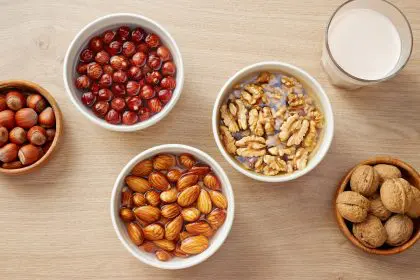Diarrhea affects millions of people worldwide, causing discomfort, dehydration, and disruption to daily activities. While most cases resolve naturally within a few days, the symptoms can be distressing and interfere with work, sleep, and social activities. Understanding effective home remedies provides safe, accessible options for managing this common digestive issue.
The digestive system possesses remarkable self-healing capabilities when supported with appropriate care and nutrition. Natural remedies have been used for centuries to address diarrhea, working with the body’s healing processes rather than suppressing symptoms artificially. These gentle approaches often provide relief while supporting overall digestive health.
Home remedies offer several advantages over pharmaceutical interventions, including accessibility, affordability, and minimal side effects when used appropriately. Most natural treatments use common household items or easily obtainable ingredients, making them practical options for immediate relief when symptoms arise unexpectedly.
1. Maintain proper hydration with electrolyte balance
Replacing fluids and electrolytes lost through diarrhea represents the most critical aspect of home treatment. Dehydration can develop rapidly during episodes of frequent loose stools, making fluid replacement the top priority for safe recovery and symptom management.
Plain water alone may not provide adequate electrolyte replacement during significant fluid losses. The body requires sodium, potassium, and other minerals to maintain proper cellular function and fluid balance. Creating homemade electrolyte solutions ensures comprehensive hydration support.
A simple homemade oral rehydration solution combines one teaspoon of salt and four teaspoons of sugar dissolved in one liter of clean water. This mixture provides essential sodium and glucose that enhance water absorption in the intestines while replacing lost electrolytes effectively.
Coconut water offers a natural source of electrolytes, particularly potassium, that can help restore mineral balance during diarrhea episodes. The natural composition of coconut water closely resembles the body’s electrolyte needs, making it an excellent hydration option.
Clear broths from chicken, beef, or vegetables provide both hydration and electrolytes while being gentle on the digestive system. The warm temperature can also provide comfort during digestive distress while contributing to overall fluid intake requirements.
2. Incorporate binding foods that firm stools
Certain foods possess natural properties that help bind loose stools and provide bulk to digestive contents. These binding foods work by absorbing excess water in the intestines while providing gentle nutrition that supports digestive recovery.
Bananas contain pectin, a soluble fiber that absorbs water and helps form firmer stools. The potassium content also helps replace electrolytes lost during diarrhea episodes. Ripe bananas are easier to digest and provide natural sugars for energy during recovery.
White rice acts as a binding food that provides easily digestible carbohydrates while absorbing excess intestinal fluid. Plain white rice cooked with extra water creates a soft, bland food that rarely irritates sensitive digestive systems during diarrhea episodes.
Toast made from white bread offers another binding option that provides carbohydrates for energy while helping firm loose stools. The toasting process makes the bread easier to digest while reducing potential irritants that might worsen digestive symptoms.
Applesauce provides pectin similar to bananas while offering a smooth, easily digestible texture that gentle on irritated intestines. Choose unsweetened applesauce to avoid additional sugars that might worsen diarrhea in some individuals.
3. Utilize probiotic foods to restore gut bacteria
Beneficial bacteria play crucial roles in digestive health and normal stool formation. Diarrhea can disrupt the balance of intestinal bacteria, making probiotic foods valuable for restoring healthy microbial populations and supporting digestive recovery.
Plain yogurt with live active cultures provides beneficial bacteria that can help reestablish healthy gut flora. Choose yogurt without added sugars or artificial ingredients that might irritate sensitive digestive systems during recovery periods.
Kefir offers a diverse range of probiotic bacteria and yeasts that support digestive health. This fermented milk product typically contains more probiotic strains than yogurt while providing protein and calcium that support overall nutritional needs.
Fermented foods like sauerkraut, kimchi, and miso provide various beneficial bacteria strains that support digestive health. However, introduce these foods gradually and in small amounts during diarrhea episodes to avoid overwhelming sensitive digestive systems.
Probiotic supplements can provide concentrated beneficial bacteria when fermented foods are not well tolerated. Choose high-quality supplements with multiple bacterial strains and proper storage requirements to ensure viability and effectiveness.
4. Harness the anti-inflammatory power of ginger
Ginger possesses natural anti-inflammatory and antimicrobial properties that can help address various causes of diarrhea while soothing digestive discomfort. This versatile root has been used medicinally for thousands of years to treat digestive ailments.
Fresh ginger tea provides gentle relief for nausea and stomach upset that often accompany diarrhea. Steep thin slices of fresh ginger root in hot water for 10-15 minutes to create a soothing beverage that can be sipped throughout the day.
Ginger’s anti-inflammatory compounds help reduce intestinal inflammation that contributes to diarrhea symptoms. The warming properties of ginger also promote circulation and may help improve digestive function during recovery periods.
Crystallized or candied ginger offers a convenient way to consume ginger’s beneficial compounds while providing small amounts of sugar for energy. This form may be easier to tolerate than fresh ginger tea for individuals experiencing nausea.
Ginger capsules provide standardized amounts of active compounds for those who cannot tolerate the taste of fresh ginger. However, start with small doses to assess tolerance and avoid potential stomach irritation in sensitive individuals.
5. Apply heat therapy for abdominal comfort
Gentle heat application can provide significant relief from abdominal cramping and discomfort associated with diarrhea. Heat therapy works by relaxing intestinal muscles, improving circulation, and providing psychological comfort during digestive distress.
A heating pad applied to the abdomen can help relax cramped intestinal muscles and reduce pain associated with diarrhea episodes. Use low to medium heat settings and limit application to 15-20 minutes at a time to prevent skin irritation.
Warm baths can provide full-body relaxation while delivering gentle heat to the abdominal area. The warm water helps relax tense muscles throughout the body while providing a soothing environment for rest and recovery.
Hot water bottles offer portable heat therapy that can be used while resting in bed or sitting comfortably. The sustained warmth can help reduce cramping and provide comfort during extended periods of digestive distress.
Warm compresses made with towels soaked in warm water provide targeted heat therapy for specific areas of abdominal discomfort. This method allows for precise application of heat to areas experiencing the most significant cramping or pain.
6. Leverage the astringent properties of black tea
Black tea contains tannins, natural compounds with astringent properties that can help reduce inflammation and bind loose stools. These tannins work by tightening intestinal tissues and reducing excessive fluid secretion in the digestive tract.
Plain black tea without milk, sugar, or other additives provides the highest concentration of beneficial tannins. Steep tea bags or loose tea for 3-5 minutes to extract adequate tannins while avoiding excessive bitterness that might be difficult to tolerate.
The mild caffeine content in black tea can help maintain alertness and energy levels during recovery periods. However, avoid excessive consumption as too much caffeine might worsen dehydration or cause additional digestive irritation.
Room temperature or slightly warm black tea may be better tolerated than hot beverages during acute diarrhea episodes. Allow freshly brewed tea to cool to a comfortable temperature before consuming to avoid potential digestive irritation.
Green tea also contains tannins and beneficial compounds, though in different concentrations than black tea. Some individuals may find green tea gentler on sensitive stomachs while still providing astringent benefits for loose stools.
7. Implement the BRAT diet for digestive rest
The BRAT diet consisting of bananas, rice, applesauce, and toast provides easily digestible foods that help firm stools while giving the digestive system time to recover. This approach has been used for decades to manage diarrhea in both children and adults.
The bland nature of BRAT foods reduces the risk of further digestive irritation while providing essential carbohydrates for energy. These foods are typically well-tolerated even during acute digestive distress when other foods might worsen symptoms.
Bananas provide potassium replacement, rice offers binding properties, applesauce supplies pectin, and toast contributes easily digestible carbohydrates. Together, these foods create a foundation for digestive recovery while minimizing potential irritants.
Gradual reintroduction of other foods can begin as symptoms improve and tolerance increases. Start with other bland foods like plain chicken, crackers, or cooked vegetables before returning to a normal diet to avoid symptom recurrence.
The BRAT diet should be used temporarily during acute symptoms rather than as a long-term eating plan. Once diarrhea resolves, gradually expand food choices to ensure adequate nutrition for complete recovery and ongoing health.
8. Utilize chamomile’s anti-inflammatory benefits
Chamomile possesses gentle anti-inflammatory and antispasmodic properties that can help soothe digestive discomfort and reduce intestinal inflammation contributing to diarrhea. This mild herb has a long history of safe use for digestive complaints.
Chamomile tea provides a soothing beverage that can be consumed throughout the day during diarrhea episodes. The warm liquid contributes to hydration needs while delivering beneficial compounds that support digestive comfort and healing.
The anti-inflammatory compounds in chamomile may help reduce intestinal inflammation that contributes to loose stools and digestive discomfort. Regular consumption of chamomile tea during recovery periods may support faster resolution of symptoms.
Chamomile’s natural sedative properties can help promote rest and relaxation during recovery periods. Adequate rest supports the body’s healing processes and may contribute to faster recovery from digestive disturbances.
Choose high-quality chamomile tea or dried chamomile flowers to ensure maximum potency and benefits. Steep chamomile for 5-10 minutes in hot water to extract beneficial compounds while creating a pleasant, mild-tasting beverage.
9. Practice portion control and meal timing
Eating smaller, more frequent meals reduces digestive burden while providing steady nutrition during recovery periods. Large meals can overwhelm sensitive digestive systems and potentially worsen diarrhea symptoms during acute episodes.
Consuming small amounts of food every 2-3 hours helps maintain energy levels while allowing the digestive system to process foods more easily. This approach reduces the risk of overwhelming intestinal capacity during recovery periods.
Avoiding large volumes of food or liquid at once prevents digestive overload that might trigger additional diarrhea episodes. Small, frequent intake allows the digestive system to handle foods more effectively during sensitive periods.
Chewing foods thoroughly aids digestion and reduces the burden on intestinal processes during recovery. Proper chewing breaks down foods more completely, making nutrients more accessible while reducing digestive work requirements.
Eating in calm, relaxed environments supports optimal digestion by reducing stress-related digestive interference. Stress can worsen digestive symptoms, making peaceful meal environments important for recovery and symptom management.
10. Monitor symptoms and seek appropriate care
Understanding when home remedies are appropriate and when professional medical care becomes necessary ensures safe management of diarrhea episodes. Most cases resolve naturally with supportive care, but certain situations require medical intervention.
Severe dehydration symptoms including dizziness, rapid heartbeat, decreased urination, or extreme thirst indicate the need for immediate medical attention. These signs suggest that home remedies alone may not be sufficient for safe recovery.
Blood in stools, high fever, or severe abdominal pain warrant prompt medical evaluation to rule out serious conditions requiring professional treatment. These symptoms may indicate infections or other conditions that need specific medical interventions.
Prolonged diarrhea lasting more than several days without improvement suggests the need for medical assessment to identify underlying causes and appropriate treatments. Extended episodes may require specific testing and targeted interventions.
Persistent vomiting that prevents adequate fluid intake creates additional dehydration risks that may require medical intervention. The inability to maintain hydration through oral intake may necessitate intravenous fluid replacement.
The effectiveness of home remedies for diarrhea lies in their gentle, supportive approach to digestive healing. These natural treatments work with the body’s recovery processes while providing comfort and symptom relief during distressing episodes.
Success with home remedies requires patience and consistent application of multiple approaches rather than expecting immediate results from single interventions. Combining hydration, appropriate foods, and supportive measures creates the best environment for natural recovery.
Prevention strategies including good hygiene, food safety practices, and stress management can help reduce the frequency of diarrhea episodes. Understanding triggers and maintaining overall digestive health supports long-term wellness and reduces reliance on remedial treatments.
Remember that while home remedies can provide effective relief for most diarrhea episodes, they work best as part of a comprehensive approach that includes appropriate rest, stress management, and attention to overall health and wellness.














